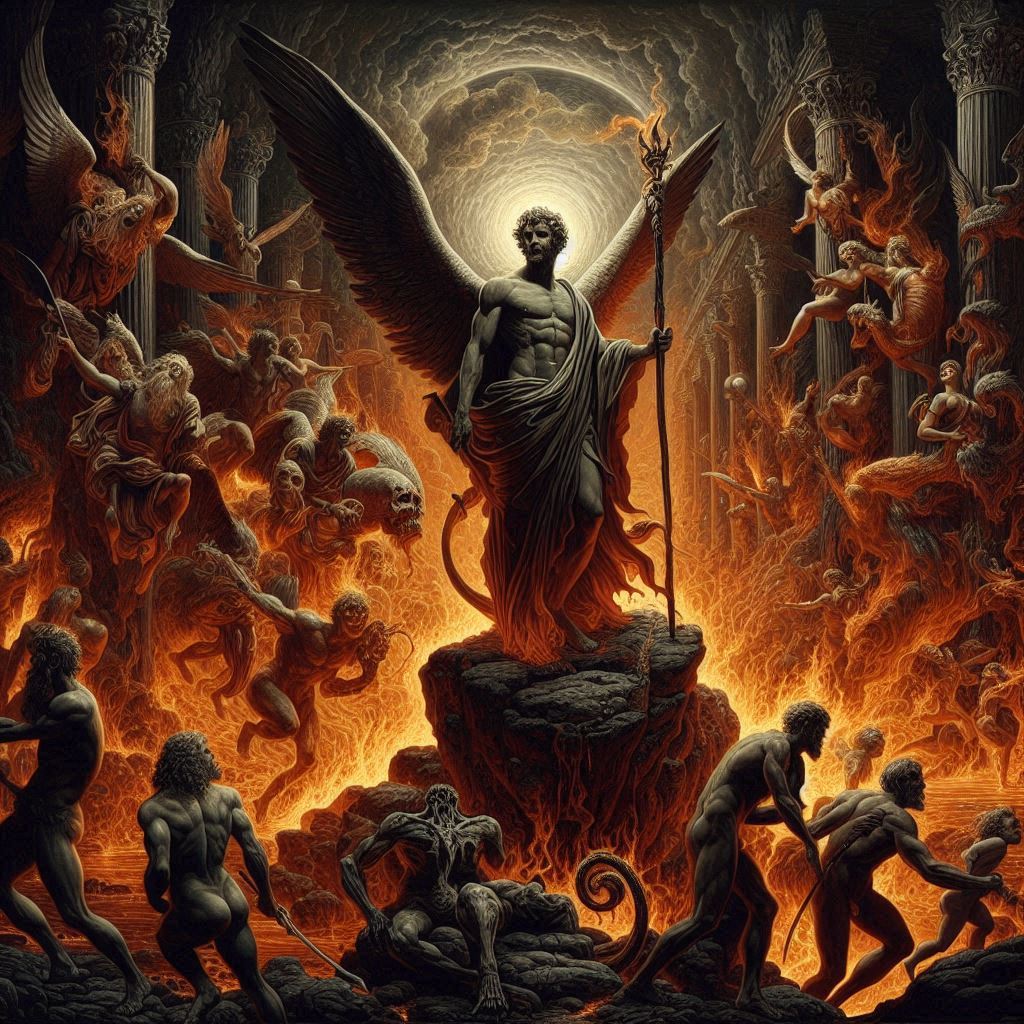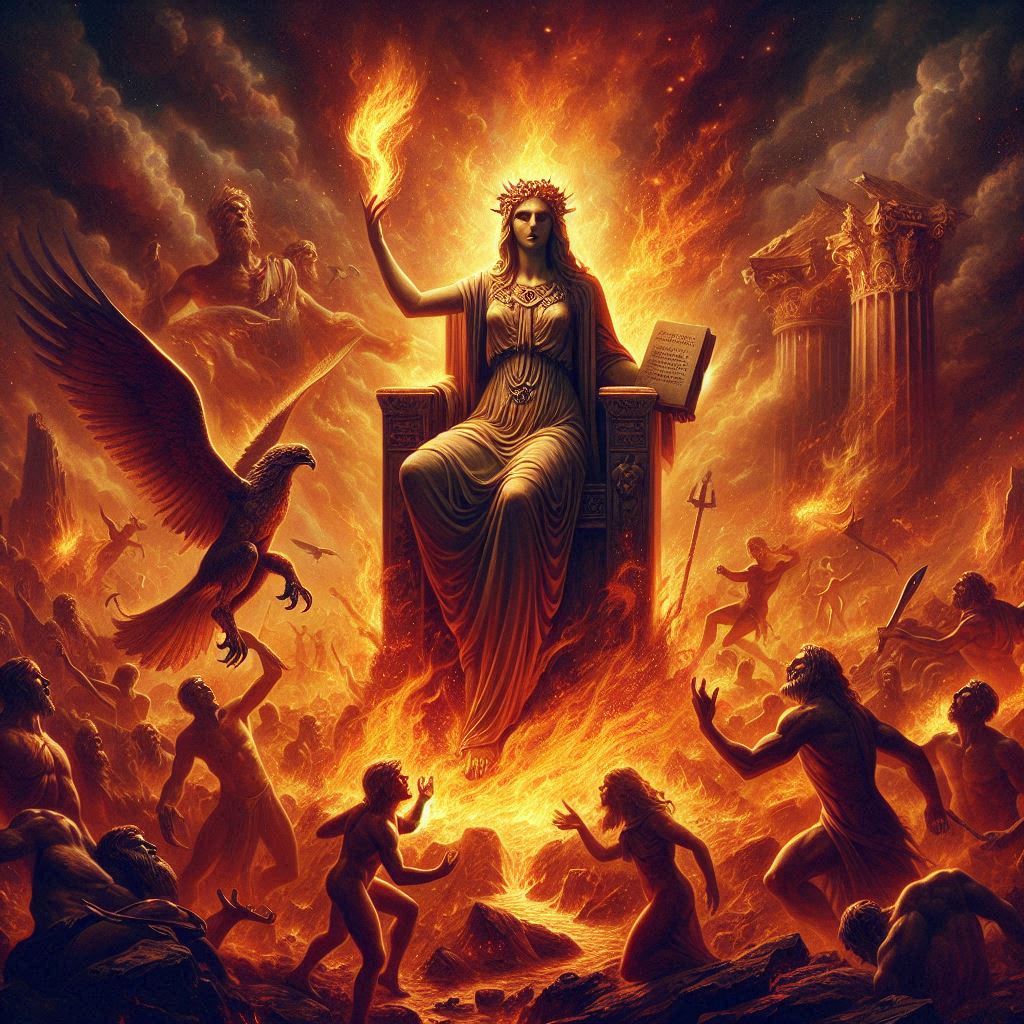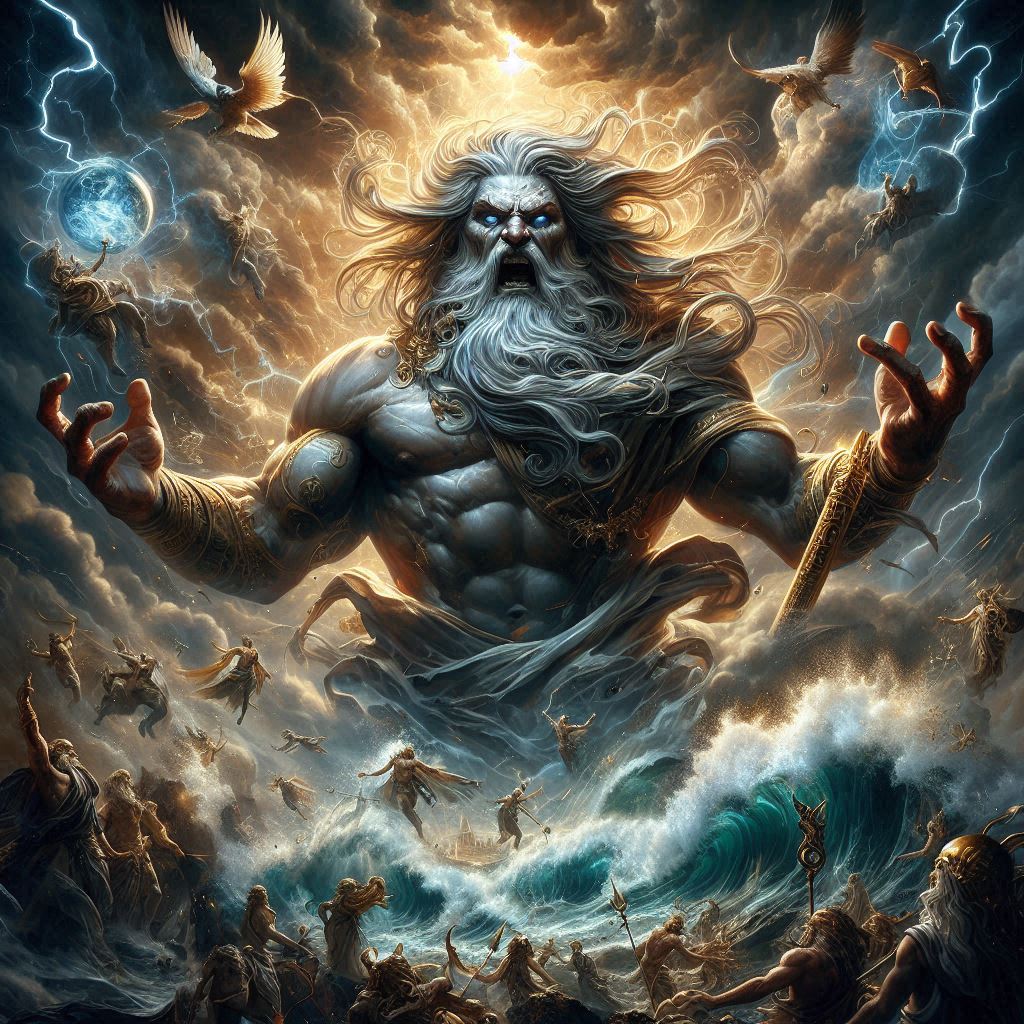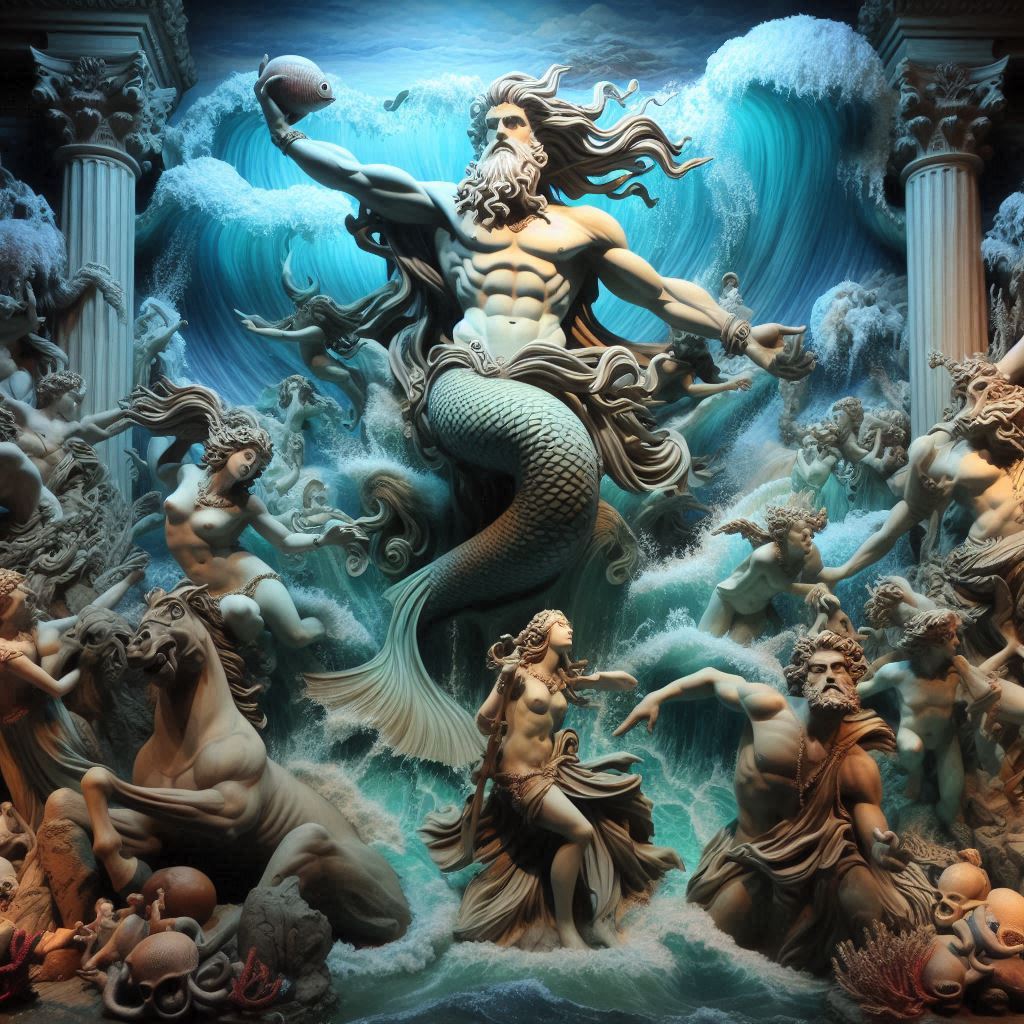Karl Marx (1818-1883) was a German philosopher, economist, and political theorist who co-authored “The Communist Manifesto” and wrote “Das Kapital.” He is renowned for his contributions to Marxist theory, emphasizing the role of class struggle in shaping society and advocating for a communist society where the means of production are owned collectively. Marx’s ideas have had a profound impact on political and social thought, influencing various movements and revolutions.
Early Life and Education
Karl Marx’s early life and education played a crucial role in shaping the intellectual foundation that would later underpin his revolutionary ideas. Born on May 5, 1818, in Trier, Prussia (now Germany), Marx grew up in a society undergoing significant transformations due to industrialization and social upheaval.
Marx hailed from a middle-class family, with his father, Heinrich Marx, working as a lawyer, and his mother, Henriette Pressburg, coming from a wealthy vineyard-owning family. Despite the family’s respectable standing, young Karl Marx was exposed to the harsh realities of the changing socio-economic landscape. Trier, a town situated in the Moselle region, was grappling with the effects of industrialization, and this exposure to societal changes would later influence Marx’s critical perspective on capitalism.
In his early years, Marx received his primary education at the Trier Gymnasium, a classical school where he excelled academically. His proficiency in languages, including Latin and Greek, showcased his intellectual prowess from an early age. As a student, Marx developed an interest in literature and poetry, foreshadowing his later engagement with philosophical and socio-political discourse.
In 1835, at the age of 17, Marx enrolled at the University of Bonn to study law, a choice influenced by his father’s profession. However, his time at Bonn was marked by a rebellious spirit and a focus on extracurricular activities rather than academic pursuits. Engaging in duels and socializing, Marx found himself at odds with university authorities, prompting his father to transfer him to the University of Berlin in 1836.
The move to Berlin proved pivotal for Marx’s intellectual development. The University of Berlin was a hotbed of intellectual ferment, with prominent thinkers such as Georg Wilhelm Friedrich Hegel shaping the academic atmosphere. Marx shifted his focus from law to philosophy, history, and political economy. Hegel’s dialectical method, a mode of reasoning that involves resolving contradictions to understand the development of ideas and history, left a lasting impact on Marx’s intellectual outlook.
While Marx initially embraced Hegelian idealism, he soon diverged from it. Influenced by the Young Hegelians, a group critical of established institutions, Marx gravitated toward a materialist perspective. This shift marked a turning point in his intellectual journey, laying the groundwork for his later critique of capitalism and development of historical materialism.
Completing his studies in 1841, Marx embarked on a career in journalism. He began contributing to the Rheinische Zeitung, a Cologne-based newspaper. Marx’s articles for the newspaper reflected his growing concern for social injustices and the impact of industrialization on the working class. His critiques of the Prussian government’s policies drew attention, leading to the eventual closure of the newspaper in 1843.
Faced with political suppression, Marx decided to move to Paris in 1843. Paris, a center of radical thought and political activism, provided a conducive environment for Marx to further develop his ideas. It was in Paris that Marx began to engage with socialist and communist thinkers and refine his critique of capitalism.
In Paris, Marx’s life took a significant turn when he met Friedrich Engels in 1844. Engels, the son of a wealthy industrialist, shared Marx’s concerns about social inequality and the plight of the working class. The collaboration between Marx and Engels would prove instrumental in the development of Marxist theory. Their intellectual partnership and close friendship endured throughout their lives.
During this period, Marx produced some of his foundational works, such as the “Economic and Philosophical Manuscripts of 1844,” in which he explored themes of alienation, labor, and human emancipation. These manuscripts provided a glimpse into Marx’s evolving thought and set the stage for his later and more comprehensive works.
Marx’s early experiences, from his formative years in Trier to his education in Berlin and his journalistic career in Cologne and Paris, laid the groundwork for the intellectual journey that would lead to the formulation of Marxist theory. The exposure to the social and economic changes of the time, coupled with his engagement with influential philosophical ideas, contributed to Marx’s development as a thinker deeply committed to understanding and transforming the world.
Political Activism
Karl Marx’s political activism marked a crucial chapter in his life, as he transitioned from an intellectual exploring radical ideas to an active participant in revolutionary movements. This period saw Marx’s engagement with various political circles, the development of his revolutionary vision, and the articulation of his critique of capitalism as a call to action.
Marx’s move to Paris in 1843 placed him in the heart of European intellectual and political ferment. Paris was a melting pot of radical thought, hosting thinkers from diverse backgrounds and movements. Here, Marx found himself surrounded by socialist, communist, and anarchist ideas. His encounters with thinkers like Pierre-Joseph Proudhon and his engagement with the German Workers’ Educational Association broadened his intellectual horizons and contributed to the maturation of his political outlook.
The turning point in Marx’s political activism came with his collaboration with Friedrich Engels. Their friendship, forged in the intellectual circles of Paris, blossomed into a partnership that would leave an indelible mark on the course of history. Engels, with his firsthand knowledge of industrial conditions and the working class, complemented Marx’s theoretical insights. Together, they embarked on a journey to understand and transform society.
In 1848, a wave of revolutions swept across Europe, fueled by discontent with monarchies and demands for political and social reforms. It was against this backdrop that Marx and Engels penned “The Communist Manifesto.” Published on the eve of the revolutions, the manifesto was a call to arms, urging the working class to unite, overthrow the bourgeoisie, and establish a classless society.
“The Communist Manifesto” was a concise and passionate articulation of Marxist principles. It opened with the famous proclamation: “A spectre is haunting Europe—the spectre of communism.” The document outlined the historical development of class struggles, identified the bourgeoisie as the ruling class, and called for the proletariat to rise against its oppressors. The manifesto concluded with the iconic rallying cry, “Workers of the world, unite!”
While the revolutions of 1848 did not immediately lead to the establishment of communist societies, the manifesto became a powerful ideological weapon. It resonated with workers’ movements and revolutionary groups, laying the groundwork for the future spread of Marxist ideas. The events of 1848 also forced Marx into a transient life, as he faced political persecution and had to move from country to country to escape authorities.
Throughout the 1850s, Marx continued his political activities, contributing to radical newspapers and engaging with workers’ movements. His experiences during this period provided valuable insights into the challenges and complexities of organizing the working class. Marx’s writings from this time, such as his journalism for the New York Tribune and his involvement with the First International, reflected his commitment to advancing the cause of proletarian revolution.
The First International, formally known as the International Workingmen’s Association, was established in 1864 with Marx playing a significant role. The International aimed to unite workers across borders, advocating for their common interests and fostering solidarity. Marx’s involvement in the International allowed him to interact with labor leaders and activists from various countries, influencing the development of workers’ movements globally.
However, internal conflicts within the International eventually led to its demise, with Marx’s vision clashing with other factions. Despite its short-lived existence, the First International served as a prototype for future attempts to unite workers on an international scale, and Marx’s experiences in this organization shaped his reflections on the challenges of organizing a global working-class movement.
Simultaneously, Marx dedicated a considerable portion of his life to completing his magnum opus, “Das Kapital.” The first volume, published in 1867, delved into the intricacies of capitalist production, exploring concepts such as surplus value, commodity fetishism, and the inherent contradictions of capitalism. While “Das Kapital” was primarily a theoretical work, it bore the unmistakable imprint of Marx’s commitment to understanding and transforming the material conditions of society.
Marx’s political activism was not confined to the realm of theory; he remained engaged with contemporary political events. The Paris Commune of 1871, a short-lived socialist experiment, captured Marx’s attention and inspired reflections on the nature of proletarian power. While the Commune ultimately faced a brutal suppression, Marx’s analysis of its strengths and shortcomings provided valuable lessons for future revolutionary movements.
As Marx aged, his health declined, and financial struggles persisted. Despite these challenges, his commitment to political activism remained steadfast. He continued to contribute to debates within the socialist movement, critiquing rival factions and refining his theories. Marx’s engagement with the Russian revolutionary movement, particularly his correspondence with Vera Zasulich, highlighted the global reach of his influence.
Karl Marx’s political activism was characterized by a dynamic interplay between theory and practice. While his theoretical contributions laid the groundwork for a comprehensive critique of capitalism, Marx also actively participated in revolutionary movements and organizations. His collaboration with Friedrich Engels, the publication of “The Communist Manifesto,” involvement in the First International, and reflections on events like the Paris Commune all underscored Marx’s commitment to translating theory into practical efforts to transform society.
Marx’s legacy as a political activist endures, inspiring successive generations of revolutionaries, intellectuals, and workers. His contributions to the understanding of class struggle, historical materialism, and the critique of capitalism have left an indelible mark on the trajectory of political thought and socio-economic movements worldwide. While interpretations of Marx’s ideas vary, there is little doubt that his life and activism played a pivotal role in shaping the course of modern history.
Exile Years
Karl Marx’s exile years, spanning from the mid-1840s to his death in 1883, were a tumultuous period marked by political upheavals, financial struggles, and the continued development of his revolutionary ideas. Forced to leave Germany and later France due to political repression, Marx’s years in exile were characterized by constant movement, collaboration with fellow revolutionaries, and the refinement of his theoretical framework.
In 1843, the Prussian government’s suppression of Marx’s newspaper, the Rheinische Zeitung, marked the beginning of his exile. Faced with increasing political scrutiny, Marx relocated to Paris, a city that served as a refuge for many political dissidents. Paris, with its vibrant intellectual atmosphere and political activism, provided Marx an opportunity to expand his network and further develop his ideas.
Marx’s arrival in Paris coincided with a period of intense intellectual exploration and collaboration. The city was a melting pot of radical thought, and Marx immersed himself in various socialist and communist circles. His engagement with French utopian socialists and German émigrés laid the groundwork for his collaboration with Friedrich Engels, a partnership that would significantly shape Marxist theory.
During his early years in Paris, Marx produced key works, such as the “Economic and Philosophical Manuscripts of 1844,” where he delved into concepts of alienation, labor, and human emancipation. Despite facing financial difficulties, Marx’s intellectual output remained prolific as he contributed articles to radical publications and expanded his critique of capitalism.
However, political pressures and the rise of conservative regimes in Europe compelled Marx to move again. In 1845, he left Paris for Brussels. During his time in the Belgian capital, Marx continued his collaboration with Engels, and together they produced works such as “The German Ideology,” which laid the foundation for historical materialism—a central tenet of Marxist theory. This period also saw Marx’s increased focus on political economy, laying the groundwork for his later and more comprehensive work, “Das Kapital.”
Financial struggles were a constant companion during Marx’s exile. He relied on sporadic financial support from Engels, who worked in Manchester and was able to provide Marx with a modest income. This financial dependency, coupled with the challenges of supporting his growing family, added a layer of difficulty to Marx’s exile years.
In 1848, revolutions erupted across Europe, driven by demands for political reform and social justice. The revolutionary wave reached its peak during the Spring of Nations, with uprisings in several European cities. In the midst of these events, Marx and Engels published “The Communist Manifesto.” While the revolutions of 1848 did not result in the immediate realization of Marxist ideals, the manifesto became a guiding document for subsequent socialist and communist movements.
The failure of the revolutions led to increased political repression, prompting Marx to leave Brussels and return briefly to Paris. However, with the French authorities cracking down on revolutionary activities, Marx once again found himself in a precarious situation. In 1849, he was expelled from France and sought refuge in London, where he would spend the remainder of his life.
London became Marx’s final haven, and despite the challenges posed by financial hardships, he continued to dedicate himself to both theoretical and practical pursuits. The British capital provided a relatively safe space for political refugees, and Marx used the city as a base for his revolutionary activities.
The 1850s were marked by a period of relative obscurity for Marx. He faced financial difficulties, relying on Engels’ support, and devoted much of his time to the completion of “Das Kapital.” However, Marx remained engaged with political developments, participating in debates within the socialist movement and contributing to various publications.
In 1864, Marx played a significant role in the establishment of the International Workingmen’s Association, also known as the First International. The International aimed to unite workers across borders, advocating for their common interests. Despite internal conflicts that eventually led to its dissolution, the First International served as a platform for Marx to interact with labor leaders and activists from different countries.
The Paris Commune of 1871, a short-lived socialist experiment, reignited Marx’s interest in practical politics. While he recognized the limitations of the Commune, Marx viewed it as a prototype for a proletarian state. His analysis of the Commune and subsequent writings on the subject contributed to the development of Marxist theories on the state and proletarian power.
Throughout his exile, Marx’s health deteriorated, exacerbated by poverty and the harsh living conditions. However, he remained intellectually active, constantly revising and expanding his theoretical works. The first volume of “Das Kapital” was published in 1867, providing a critical analysis of the capitalist mode of production. Subsequent volumes, edited and published posthumously by Engels, continued to explore the complexities of political economy.
Marx’s exile years were characterized by a delicate balance between theoretical pursuits and political engagement. While he faced personal and financial challenges, including the loss of two of his children, Marx continued to refine his revolutionary vision. His insights into the dynamics of capitalism, historical materialism, and the role of the working class in social change laid the groundwork for the subsequent development of Marxist theory.
Karl Marx’s death on March 14, 1883, marked the end of an era. Despite the challenges of exile, financial hardships, and political repression, Marx’s ideas endured. His intellectual legacy became a powerful force, influencing generations of thinkers, activists, and revolutionaries. The exile years, though marked by personal struggles, were also a period of immense intellectual productivity, as Marx’s theories continued to shape the course of political and economic thought well beyond his lifetime.
Relationship with Friedrich Engels
The relationship between Karl Marx and Friedrich Engels was not only a profound intellectual collaboration but also a deep and enduring friendship that significantly influenced the development of Marxist theory and the course of political thought in the 19th and 20th centuries.
Marx and Engels first crossed paths in 1842 in Cologne, Germany, where Engels was working for his father’s textile business. Engels, a young and politically engaged man, was drawn to the radical ideas circulating in intellectual circles. Impressed by Marx’s contributions to the Rheinische Zeitung, a newspaper in which Marx served as an editor, Engels sought to establish contact with him.
Their initial meeting in person occurred in Paris in 1844, solidifying the beginning of a lifelong friendship and intellectual partnership. This meeting marked the convergence of two minds deeply committed to understanding and changing the world. Engels, the son of a wealthy industrialist, provided Marx with insights into the conditions of the working class and the dynamics of industrial capitalism—a perspective that would significantly influence Marx’s later works.
The intellectual collaboration between Marx and Engels took various forms. They engaged in extensive correspondence, exchanged ideas, and co-authored several important works. One of their early collaborative efforts was “The Holy Family,” published in 1845, where they critiqued the Young Hegelians and articulated their materialist and historical approach to understanding society.
The turning point in their collaboration came with the publication of “The Communist Manifesto” in 1848. This seminal work, co-written by Marx and Engels, remains one of the most influential political documents in history. It succinctly laid out their analysis of class struggle, historical materialism, and the call for the proletariat to rise against the bourgeoisie. The manifesto was a clarion call for workers of the world to unite and marked the birth of modern communism.
The collaboration between Marx and Engels extended beyond theoretical works to practical involvement in political movements. During the revolutionary upheavals of 1848, Marx and Engels actively participated in the revolutionary fervor that swept across Europe. They advocated for proletarian interests, contributing to the radical press and engaging with socialist and communist movements.
The failure of the 1848 revolutions and subsequent political repression forced Marx and Engels into exile. This period of forced displacement became a time of intense intellectual productivity. While Marx faced financial difficulties, Engels, who had a stable job in Manchester, provided crucial financial support that allowed Marx to continue his work. Engels’ financial backing not only sustained Marx but also enabled the completion of seminal works like “Das Kapital.”
Engels’ experiences in Manchester, witnessing the harsh conditions of industrial capitalism, greatly informed Marx’s understanding of the capitalist mode of production. Engels’ detailed observations on the working class and the industrial landscape were invaluable to Marx, who was deeply engrossed in developing his economic theories.
Engels’ role extended beyond financial support; he actively contributed to the research and development of Marxist theory. Engels’ work, “The Condition of the Working Class in England,” published in 1845, provided a firsthand account of the deplorable living and working conditions of the English working class. This empirical evidence reinforced Marx’s theoretical framework and contributed to their joint understanding of capitalism.
Throughout their collaboration, Marx and Engels maintained a dynamic intellectual exchange, often challenging and refining each other’s ideas. Their letters reveal a relationship marked by mutual respect and camaraderie. Engels’ sharp analytical mind complemented Marx’s theoretical brilliance, creating a synergy that propelled their intellectual endeavors forward.
The relationship between Marx and Engels was not without its moments of disagreement and debate. They engaged in discussions on various topics, from philosophical matters to strategic considerations for revolutionary movements. However, these disagreements were characterized by a shared commitment to advancing the cause of the working class and refining the theoretical foundations of Marxism.
In the later years of Marx’s life, as he struggled with declining health and financial hardships, Engels played a crucial role in supporting him both emotionally and materially. Engels tirelessly worked to compile and edit the remaining volumes of “Das Kapital” after Marx’s death in 1883. Engels’ dedication ensured that Marx’s seminal work would reach a wider audience and solidify its place as a cornerstone of Marxist theory.
After Marx’s death, Engels continued to champion their shared ideas and defend the legacy of Marxism. Engels’ work, “Anti-Dühring,” addressed contemporary debates within the socialist movement and clarified key Marxist concepts. He also played a pivotal role in popularizing Marxist ideas, contributing to the dissemination of their theories to a broader audience.
The relationship between Marx and Engels transcended the intellectual realm; it was a friendship forged in the crucible of political and social upheaval. Their correspondence, spanning decades, reflects not only the development of Marxist theory but also the enduring personal bond between the two men. Engels’ unwavering support, both intellectually and financially, allowed Marx to dedicate himself fully to his revolutionary vision.
The impact of Marx and Engels’ collaboration cannot be overstated. Their ideas laid the groundwork for numerous political movements, socialist and communist parties, and revolutions across the globe. The enduring legacy of their friendship and intellectual partnership has shaped the trajectory of political thought and continues to resonate in discussions on class struggle, capitalism, and the quest for a more just society.
The Communist Manifesto
“The Communist Manifesto,” co-authored by Karl Marx and Friedrich Engels and published in 1848, stands as one of the most influential and revolutionary political documents in history. This concise and impassioned manifesto encapsulates the core tenets of Marxism, providing a compelling analysis of class struggle, historical materialism, and the call for proletarian revolution.
The manifesto opens with the iconic declaration: “A spectre is haunting Europe—the spectre of communism.” This vivid imagery captures the essence of the document, framing communism as an idea that poses a threat to the prevailing social order. The authors immediately establish the historical context of their analysis, situating it within the broader context of the conflicts between classes that have shaped human history.
The central thesis of “The Communist Manifesto” revolves around the idea that all of history is the history of class struggles. Marx and Engels argue that societies throughout time have been characterized by the division of people into classes based on their relationship to the means of production. They identify historical epochs, such as feudalism and capitalism, as stages in the development of these class struggles.
The manifesto provides a critical analysis of the bourgeoisie, the ruling class in capitalist societies, and its historical role. According to Marx and Engels, the bourgeoisie played a revolutionary role in history by overthrowing feudalism and ushering in the era of capitalism. However, they assert that the bourgeoisie’s own existence is marked by constant revolutionizing of the means of production, leading to a society characterized by “incessant revolutionizing of production, uninterrupted disturbance of all social conditions, everlasting uncertainty and agitation.”
While acknowledging the transformative impact of capitalism, Marx and Engels assert that the very system that the bourgeoisie created contains the seeds of its own destruction. They argue that capitalism inevitably leads to the concentration of wealth and power in the hands of the few, creating a stark division between the bourgeoisie and the proletariat—the working class.
The manifesto vividly describes the plight of the proletariat, emphasizing their exploitation, alienation, and degradation under capitalism. Marx and Engels contend that the relentless pursuit of profit by the bourgeoisie results in the commodification of labor, reducing workers to mere commodities and fostering a sense of alienation from the products of their own labor.
The authors assert that the proletariat, bound together by common interests and experiences, has the historical mission to overthrow the bourgeoisie and establish a classless society. They declare, “The proletarians have nothing to lose but their chains. They have a world to win.” This rallying cry encapsulates the revolutionary spirit of the manifesto, urging the working class to unite and rise against its oppressors.
“The Communist Manifesto” outlines ten measures to be implemented after the proletariat has achieved political power. These measures include the abolition of property in land, free education, progressive taxation, and the centralization of communication and transportation. Marx and Engels argue that these measures would pave the way for the transition to communism, a society where class distinctions and private ownership of the means of production would be abolished.
The document also addresses and critiques various socialist and communist movements and theories that were prevalent at the time. Marx and Engels distinguish their approach—scientific socialism—from other forms of socialism, emphasizing the historical and material conditions that shape society. They critique utopian socialism for its idealistic and non-materialist foundations, asserting that their approach is grounded in a scientific understanding of the laws governing social development.
“The Communist Manifesto” concludes with a powerful call for internationalism: “Workers of the world, unite!” This call transcends national boundaries, emphasizing the necessity for global solidarity among the working class. Marx and Engels envision a world where the struggles of the proletariat lead to the establishment of a global communist society.
The impact of “The Communist Manifesto” has been profound and enduring. Initially published as a political pamphlet for the Communist League, the document rapidly gained recognition and influence. It became a guiding force for socialist and communist movements worldwide, providing a theoretical foundation for revolutionary thought and action.
The manifesto’s influence extended beyond its immediate historical context. It inspired revolutions, labor movements, and political ideologies throughout the 19th and 20th centuries. The October Revolution in Russia in 1917, led by the Bolsheviks, drew inspiration from the ideas articulated in the manifesto. The document’s themes of class struggle, proletarian revolution, and the critique of capitalism resonated with activists, intellectuals, and revolutionaries across diverse cultural and political landscapes.
“The Communist Manifesto” has also faced criticism and controversy. Critics argue that its predictions about the imminent collapse of capitalism did not materialize as Marx and Engels envisioned. Others have raised concerns about the implementation of Marxist ideas in various historical contexts, citing instances where attempts to establish communist societies led to authoritarian regimes.
Despite the critiques, “The Communist Manifesto” remains a foundational text in political theory. Its enduring relevance is evident in ongoing debates about economic inequality, the role of the state, and the quest for social justice. The manifesto’s emphasis on class struggle, historical materialism, and the potential for revolutionary change continues to shape discussions on the nature of capitalism and the possibilities for a more equitable society.
Economic Theories
Karl Marx’s economic theories, encapsulated in his seminal work “Das Kapital” and other writings, have had a profound and lasting impact on the study of economics, politics, and sociology. Rooted in a materialist conception of history, Marx’s economic theories offer a critical analysis of capitalism, exploring its internal contradictions, dynamics of exploitation, and the potential for revolutionary change.
One of the central tenets of Marx’s economic thought is historical materialism, a framework that interprets societal development as driven by changes in the means of production. According to Marx, economic structures form the basis for social and political institutions, and historical progress results from class struggles arising from these structures.
In “Das Kapital,” Marx delves into the intricacies of capitalism, dissecting its economic mechanisms and exposing what he sees as inherent contradictions. The first volume, published in 1867, focuses on the process of capitalist production, introducing key concepts such as commodity fetishism, surplus value, and the labor theory of value.
The labor theory of value, a cornerstone of Marx’s economic thought, posits that the value of a commodity is determined by the socially necessary labor time required for its production. Marx argues that in capitalist societies, where commodities are exchanged for money, the underlying source of value is the labor embodied in those commodities. This theory challenges classical and neoclassical theories of value, which emphasize subjective preferences or utility.
Commodity fetishism, another concept introduced in “Das Kapital,” refers to the mystification of social relations under capitalism. Marx argues that in a society where commodities are bought and sold, the social relationships between individuals appear as relationships between things. This fetishism, Marx contends, obscures the exploitative nature of the capitalist system.
Surplus value is a crucial concept in Marx’s analysis of capitalist exploitation. It refers to the additional value created by workers beyond what is necessary for their own subsistence—the surplus extracted by capitalists as profit. Marx distinguishes between constant capital (investments in means of production) and variable capital (wages paid to labor). The surplus value arises from the exploitation of variable capital, as capitalists seek to maximize profits by extracting surplus labor from workers.
Marx’s exploration of surplus value leads to his theory of alienated labor. He argues that in capitalist production, workers are alienated from the products of their labor, the labor process itself, their fellow workers, and even their own humanity. Alienation, according to Marx, is a consequence of the commodification of labor under capitalism, where workers sell their labor power as a commodity.
Capitalist accumulation, a process central to Marx’s economic theories, describes the tendency of capital to concentrate and centralize in the hands of a few capitalists. Marx argues that competition among capitalists leads to the accumulation of wealth by a select few, while smaller capitalists are driven out of business. This process, he contends, intensifies social inequality and creates the conditions for the emergence of a proletariat that could challenge capitalist relations.
In subsequent volumes of “Das Kapital,” edited and published posthumously by Friedrich Engels, Marx continued to explore the dynamics of capitalist production, circulation, and distribution. He examined the role of credit, interest, and financial markets in shaping capitalist economies. Marx’s analysis of capitalism as a dynamic and evolving system provided a framework for understanding economic crises, such as those characterized by overproduction and financial instability.
Critics of Marx’s economic theories often highlight the challenges and shortcomings of his predictions. Some argue that the predicted immiseration of the working class did not materialize to the extent Marx envisaged, and capitalism adapted in ways he did not foresee. Others contend that Marx’s labor theory of value and predictions of the inevitable collapse of capitalism have been disproven by historical developments.
Despite these critiques, Marx’s economic theories continue to be influential and are subject to reinterpretation and adaptation. Marxist economists have extended and modified his ideas, addressing contemporary economic challenges and developments. Various schools of Marxist thought, including Marxist political economy, world-systems theory, and post-Marxism, have emerged, each offering distinct perspectives on capitalism and its transformations.
In addition to economic analyses, Marx’s theories have had a profound impact on political and sociological thought. His exploration of class struggle and historical materialism provided a framework for understanding the dynamics of social change. Marx’s emphasis on the role of ideology, institutions, and state power in perpetuating capitalist relations has influenced critical theories and analyses of power structures.
Marx’s economic theories also laid the groundwork for the development of socialist and communist movements worldwide. The call for the working class to unite and overthrow the bourgeoisie, as articulated in “The Communist Manifesto,” became a rallying cry for revolutionary movements in the 19th and 20th centuries. Marxist ideas inspired political leaders, intellectuals, and activists who sought to implement aspects of Marx’s vision in various social and political contexts.
The impact of Marx’s economic theories extended beyond the academic realm into political practice. Marxist-inspired revolutions, such as the Russian Revolution of 1917, sought to establish socialist societies based on the principles outlined by Marx. The subsequent establishment of communist states in the 20th century, albeit often deviating from Marx’s original vision, reflected the influence of his ideas on political movements and governance.
Critique of Capitalism
Karl Marx’s critique of capitalism, articulated in works such as “Das Kapital” and “The Communist Manifesto,” remains a foundational analysis that has shaped discussions on economics, politics, and society. Marx’s critique delves into the systemic flaws and contradictions inherent in capitalism, addressing issues of exploitation, alienation, inequality, and the potential for revolutionary change.
One of Marx’s central criticisms of capitalism revolves around the concept of exploitation. According to Marx, the capitalist mode of production is characterized by the extraction of surplus value from the labor of the working class. The capitalist, who owns the means of production, exploits the worker by paying them a wage that is less than the value they produce during the labor process. This surplus value is the source of profit for the capitalist.
The process of exploitation, Marx argues, leads to the accumulation of wealth in the hands of a few capitalists while the majority of the population—the proletariat—experiences economic hardship. Marx predicts that over time, this concentration of wealth and power would intensify, creating a stark division between the bourgeoisie (capitalist class) and the proletariat (working class).
Alienation is another crucial aspect of Marx’s critique of capitalism. Marx contends that under capitalism, workers become alienated from the products of their labor, the labor process itself, their fellow workers, and even their own humanity. The commodification of labor, where labor power is treated as a commodity to be bought and sold, results in a sense of estrangement and detachment for the worker. Workers no longer have control over what they produce or how they produce it, leading to a loss of autonomy and a sense of powerlessness.
Commodity fetishism, a concept introduced by Marx in “Das Kapital,” refers to the mystification of social relations under capitalism. Marx argues that in a society where commodities are exchanged for money, the social relationships between individuals appear as relationships between things. This fetishism obscures the social relations of production and consumption, creating an illusion that commodities have inherent value independent of the social context in which they are produced.
The inherent contradictions of capitalism are a focal point in Marx’s critique. He identifies contradictions between the forces and relations of production, suggesting that technological advancements and innovations (forces of production) clash with the social relations of capitalism. For instance, technological progress may lead to increased productivity, but under capitalism, it can also result in unemployment and exploitation.
Marx also highlights the contradiction between use-value and exchange-value. Use-value refers to the actual utility or usefulness of a commodity, while exchange-value refers to its value in terms of other commodities. Marx argues that under capitalism, the pursuit of exchange-value often leads to the production of commodities with little regard for their actual utility or the well-being of society.
The tendency of capital to accumulate, as explored in “Das Kapital,” is another critical aspect of Marx’s critique. Capitalist accumulation, driven by the competition among capitalists to maximize profits, leads to the centralization of wealth in the hands of a few. Marx predicts that this concentration of capital would result in economic crises, social inequality, and heightened class antagonisms.
Marx’s critique of capitalism extends to the role of the state. He argues that the state serves the interests of the ruling class—the bourgeoisie—by enforcing property relations and suppressing challenges to the existing order. The state, in Marx’s view, is an instrument of class domination, reflecting and perpetuating the economic relations of capitalism.
While Marx’s critique of capitalism is comprehensive, it has faced various criticisms and challenges. Some argue that the predictions of capitalism’s inevitable collapse and the immiseration of the working class have not materialized to the extent Marx envisioned. Others contend that Marx’s focus on economic factors neglects the role of cultural, political, and institutional factors in shaping societies.
Despite these critiques, Marx’s analysis of capitalism remains influential, and his insights continue to inform contemporary debates. The critique of exploitation, alienation, and social inequality resonates with discussions on labor rights, income inequality, and the impact of technological change on employment. Marx’s emphasis on the systemic nature of these issues invites critical reflection on the structures and dynamics of capitalist societies.
Marx’s critique of capitalism also paved the way for subsequent developments in economic and political thought. Various schools of Marxist theory, including Marxist political economy, world-systems theory, and neo-Marxism, have expanded and adapted Marx’s ideas to address new challenges and changes in the global economy. Marxist perspectives continue to influence critical analyses of capitalism, informing discussions on neoliberalism, globalization, and the role of the state in economic affairs.
Personal Life and Relationships
Karl Marx’s personal life and relationships provide a glimpse into the man behind the influential theories of Marxism. Born on May 5, 1818, in Trier, Prussia (now Germany), Marx came from a middle-class family with Jewish ancestry that later converted to Christianity due to anti-Jewish laws. His personal life was marked by intellectual pursuits, financial struggles, enduring relationships, and the pursuit of revolutionary ideals.
Marx’s early years were characterized by academic excellence. He attended the University of Bonn in 1835 and later transferred to the University of Berlin. In Berlin, Marx engaged with the philosophical and political currents of the time, particularly the ideas of German idealist philosophers like Georg Wilhelm Friedrich Hegel. These intellectual explorations laid the groundwork for Marx’s later revolutionary thought.
In 1843, Marx married Jenny von Westphalen, his childhood sweetheart. Jenny, from a noble Prussian family, shared Marx’s intellectual interests and became his lifelong companion. Their union defied social norms and class boundaries, as Marx, despite his middle-class background, married into the Prussian nobility. Jenny’s unwavering support, both emotionally and financially, played a crucial role in Marx’s life, especially during times of financial hardship.
The early years of Marx’s marriage were marked by a nomadic existence. Political pressures and conflicts with Prussian authorities forced Marx and Jenny to move across various European cities, including Cologne, Paris, and Brussels. This period of constant movement reflected Marx’s active involvement in radical political circles and his commitment to revolutionary ideals.
Marx’s family life also faced financial challenges. Despite his intellectual brilliance, Marx struggled with financial stability throughout his life. The couple had six children, but tragically, only three survived into adulthood. The deaths of their children added an element of personal tragedy to Marx’s life, compounding the financial and political pressures he faced.
Friedrich Engels, a close friend and collaborator, played a crucial role in supporting Marx during periods of financial hardship. Engels, born into an industrialist family, not only provided financial assistance to Marx but also became a dedicated intellectual partner. Their friendship, rooted in shared revolutionary ideals, endured until Marx’s death in 1883. Engels’ contributions, both intellectually and financially, allowed Marx to continue his work, including the completion of his seminal work, “Das Kapital.”
In 1849, Marx and his family settled in London, where they spent the remainder of their lives. The family lived in relative poverty, relying on the generosity of friends and supporters. Despite financial struggles, Marx remained committed to his work, including the completion of “Das Kapital,” a comprehensive critique of capitalism.
Marx’s personal life included moments of leisure and socializing. He enjoyed engaging in spirited debates with friends and fellow intellectuals. His circle of friends included political activists, fellow exiles, and individuals from diverse backgrounds. These social interactions provided moments of respite amidst the challenges of Marx’s life.
Political activism continued to be a defining aspect of Marx’s personal relationships. He played a key role in establishing the International Workingmen’s Association, or the First International, in 1864. This organization aimed to unite workers globally and advocate for their common interests. Marx’s involvement allowed him to interact with labor leaders and activists from various countries, influencing the development of workers’ movements worldwide.
The Paris Commune of 1871, a short-lived socialist experiment, captured Marx’s attention and inspired reflections on the nature of proletarian power. While the Commune faced brutal suppression, Marx’s analysis of its strengths and shortcomings provided valuable lessons for future revolutionary movements. The political events of the time continued to shape Marx’s intellectual engagement and underscored the connection between his personal life and revolutionary ideals.
In his later years, Marx faced declining health, exacerbated by years of financial hardship and the strains of political activism. Despite his health challenges, he remained intellectually active and contributed to debates within the socialist movement. Marx’s last years were marked by a persistent dedication to refining his theories and engaging with political developments.
Karl Marx passed away on March 14, 1883, at the age of 64. His funeral was attended by a small group of family and friends, reflecting the financial and political challenges that marked his life. Friedrich Engels delivered a eulogy, highlighting Marx’s contributions to revolutionary thought and expressing a commitment to carrying forward their shared vision.
Legacy and Influence
Karl Marx’s legacy and influence have reverberated across the realms of politics, economics, philosophy, and sociology since the mid-19th century. His revolutionary ideas, encapsulated in works like “The Communist Manifesto” and “Das Kapital,” laid the groundwork for critical analyses of capitalism, class struggle, and social change. Marx’s legacy is complex and multifaceted, with enduring impact and ongoing debates surrounding the practical application of his theories.
One of Marx’s most enduring contributions lies in his critique of capitalism. He argued that capitalism, marked by class divisions, exploitation, and alienation, contained inherent contradictions that would lead to its eventual demise. Marx’s examination of the labor theory of value, commodity fetishism, and the dynamics of capital accumulation provided a comprehensive framework for understanding the workings of capitalist societies. His ideas challenged prevailing economic theories and influenced subsequent generations of economists and social theorists.
The concept of historical materialism, central to Marx’s thought, emphasized the role of economic structures in shaping societal development. According to Marx, changes in the means of production drive historical progress, and class struggles arise as a result. This perspective influenced the field of historical sociology, encouraging scholars to analyze historical events and social structures through the lens of material conditions and class dynamics.
Marx’s analysis of class struggle and the historical role of different social classes resonated with political movements around the world. His call for the proletariat to unite and overthrow the bourgeoisie, as outlined in “The Communist Manifesto,” became a rallying cry for socialist and communist movements. The October Revolution in Russia in 1917, led by the Bolsheviks, drew inspiration from Marxist ideas, leading to the establishment of the Soviet Union.
The legacy of Marxism also extended to political philosophy. Marx’s ideas about the state as an instrument of class rule and the eventual withering away of the state in a communist society influenced subsequent political thinkers. Concepts like dictatorship of the proletariat and the critique of bourgeois democracy became touchstones for revolutionary political movements.
However, the application of Marx’s ideas in practice varied, leading to a diversity of Marxist interpretations and adaptations. The Soviet Union, under leaders like Vladimir Lenin and Joseph Stalin, implemented a form of Marxism-Leninism that deviated from some of Marx’s original visions. Other countries and movements, such as Maoism in China and Castroism in Cuba, developed their own variations of Marxist theory in response to unique historical and cultural contexts.
Marxist thought also left an indelible mark on cultural and literary criticism. The Frankfurt School, a group of intellectuals including Theodor Adorno, Max Horkheimer, and Herbert Marcuse, developed critical theory rooted in Marxist principles. Their work explored the intersections of culture, ideology, and social structures, influencing disciplines such as cultural studies and critical sociology.
In addition to political and economic realms, Marx’s influence reached the field of anthropology. Marxist anthropologists, such as Eric Wolf and Maurice Godelier, applied Marx’s ideas to the study of kinship, social structures, and historical processes. They sought to understand how economic relations shaped societies and cultures across different historical contexts.
Marxism’s impact on labor movements and the quest for workers’ rights cannot be overstated. Labor unions, socialist parties, and worker movements worldwide drew inspiration from Marx’s call for the emancipation of the working class. The struggle for better working conditions, fair wages, and collective bargaining has been deeply influenced by Marxist principles.
Despite its enduring influence, Marx’s legacy has faced criticism and challenges. Critics argue that the implementation of Marxist ideas in various historical contexts led to authoritarian regimes, economic inefficiencies, and human rights abuses. The collapse of the Soviet Union and the Eastern Bloc in the late 20th century prompted reflections on the limitations and shortcomings of centralized planned economies.
In the realm of economics, Marx’s labor theory of value and predictions about the inherent instability of capitalism have been subjects of ongoing debate. Neoclassical economists and proponents of market-oriented ideologies criticize Marxist economic theories for neglecting the role of market mechanisms, individual preferences, and entrepreneurship in determining economic outcomes.
Cultural critics have also challenged aspects of Marxist theory, particularly its determinism and economic reductionism. Postmodernist and poststructuralist thinkers have questioned grand narratives and universal claims, emphasizing the multiplicity of perspectives and the importance of cultural, linguistic, and discursive factors in shaping social reality.
However, despite critiques and adaptations, Marx’s ideas remain a touchstone for those grappling with questions of inequality, social justice, and the nature of capitalism. His critique of alienation, exploitation, and the commodification of labor continues to resonate with those concerned about the human costs of unrestrained capitalism.
In recent years, there has been a renewed interest in Marx’s work, particularly in the wake of global economic crises and increasing concerns about income inequality. Scholars and activists revisit Marx’s writings to analyze contemporary challenges, such as the gig economy, financialization, and the impact of technological change on labor.
Marx’s legacy is not confined to academia and political movements. His ideas have permeated popular culture, inspiring artists, musicians, and filmmakers. The iconic imagery and slogans from “The Communist Manifesto” have become cultural symbols, evoking notions of rebellion, social change, and the pursuit of a more equitable world.
Controversies and Criticisms
Karl Marx’s theories and ideas, while influential and enduring, have not been without controversies and criticisms. From the economic realm to political philosophy, Marx’s work has sparked debates, critiques, and alternative perspectives. These controversies range from the practical application of Marxist principles to fundamental criticisms of key concepts within his theory.
One significant area of controversy surrounds the practical implementation of Marxist ideas in various historical and political contexts. The 20th century witnessed attempts to establish socialist and communist states based on Marxist principles, with the Soviet Union being a prominent example. Critics argue that these experiments often resulted in authoritarian regimes, curtailing individual freedoms, and concentrating power in the hands of a ruling elite.
The centralized planned economies that emerged in these states faced challenges related to inefficiency, lack of innovation, and bureaucratic corruption. Critics argue that the absence of market mechanisms and private ownership led to economic stagnation and shortages of goods and services. The collapse of the Soviet Union and the Eastern Bloc in the late 20th century prompted reflections on the limitations and failures of these attempts to implement Marxist principles.
Another area of contention revolves around Marx’s labor theory of value. While this theory asserts that the value of a commodity is determined by the socially necessary labor time required for its production, critics argue that it does not account for subjective factors such as consumer preferences and utility. Neoclassical economists, in particular, emphasize the role of supply and demand, market competition, and individual choices in determining prices and values.
The prediction of the inevitable collapse of capitalism has also faced criticism. Some argue that capitalism has shown adaptability and resilience, incorporating reforms and adjustments to address social inequalities and economic instabilities. The existence of mixed economies, combining market mechanisms with social welfare policies, challenges Marx’s prediction of a straightforward transition from capitalism to socialism.
The concept of historical materialism, while foundational to Marx’s theory, has faced challenges as well. Critics question the deterministic nature of this framework, arguing that it oversimplifies complex historical processes and neglects the role of contingency, cultural factors, and human agency in shaping historical events. Postmodernist and poststructuralist thinkers have highlighted the importance of multiple perspectives and discursive factors in understanding historical developments.
Marx’s theory of alienation has also been subject to critique. Some argue that the experience of alienation is not limited to capitalist societies and can be found in various social structures. Critics contend that the emphasis on economic factors in explaining alienation overlooks other dimensions, such as cultural and psychological factors, that contribute to individuals’ sense of estrangement.
Additionally, Marx’s vision of the dictatorship of the proletariat and the eventual withering away of the state has faced skepticism. Critics point to the historical examples where attempts to establish proletarian states resulted in the consolidation of state power and repression of political dissent. The idea of a stateless communist society remains a point of contention, with questions about the feasibility of governance without a centralized authority.
Marx’s writings on the nature of ideology and false consciousness have also been challenged. Critics argue that the notion of false consciousness, wherein individuals are said to hold beliefs that go against their own class interests, can be patronizing and overly deterministic. The complexity of human consciousness, diverse belief systems, and the role of agency are often neglected in this analysis.
In the realm of gender and race, Marx’s theory has faced criticisms for its perceived neglect of intersectionality—the interconnected nature of social categorizations such as race, class, and gender. Feminist and postcolonial scholars argue that Marx’s focus on economic relations and class struggle does not adequately address the unique forms of oppression experienced by women and racial minorities.
While acknowledging these controversies and criticisms, it is essential to recognize the ongoing impact and adaptability of Marx’s ideas. The field of Marxist studies has evolved, with scholars developing new interpretations and critiques. Contemporary Marxists often engage with other intellectual traditions, integrating insights from feminism, postcolonialism, and environmentalism to address the limitations of classical Marxist theory.
Despite the challenges and critiques, Marx’s work continues to be a source of inspiration for those concerned with social justice, inequality, and the critique of capitalism. The controversies surrounding Marx’s theories invite ongoing discussions and reflections on how to address the complexities of modern societies and envision alternatives to existing social structures. Whether one embraces or challenges Marx’s ideas, his intellectual legacy remains a powerful force that shapes debates about the nature of society and the possibilities for transformative change.










